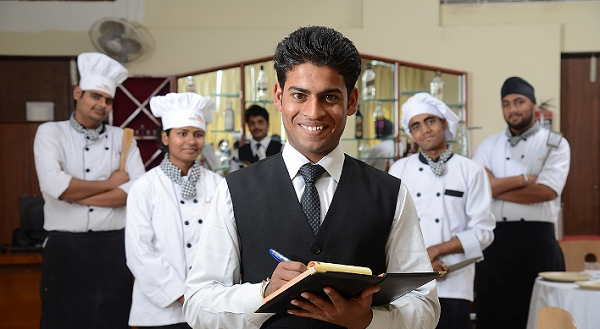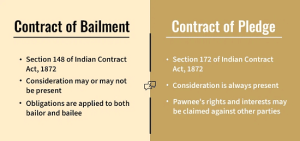Diploma in Hotel Management 3rd Year Syllabus- Here are some common subjects and topics that you might encounter in the third year:
- Advanced Food and Beverage Management:
- Menu planning and design
- Beverage management and mixology
- Food and beverage cost control
- Restaurant management techniques
- Front Office Operations:
- Advanced front office procedures
- Reservation systems and techniques
- Guest services and problem-solving
- Revenue management
- Accommodation Management:
- Housekeeping management and operations
- Laundry operations and management
- Cleaning techniques and standards
- Maintenance and facilities management
- Marketing and Sales in Hospitality:
- Hospitality marketing strategies
- Sales techniques and negotiation
- Branding and promotional activities
- Customer relationship management
- Human Resource Management in Hospitality:
- Employee recruitment and selection
- Training and development
- Performance appraisal
- Labor laws and regulations in the hospitality industry
- Financial Management in Hospitality:
- Budgeting and financial planning
- Cost control and analysis
- Profit and loss statements
- Financial ratios and performance metrics
- Hospitality Law and Ethics:
- Legal aspects of hospitality operations
- Contracts and liability
- Intellectual property in the hospitality industry
- Ethical considerations and responsible management
- Events and Banqueting Management:
- Planning and organizing events
- Banquet setup and operations
- Catering management
- Event logistics and coordination
- Strategic Management in Hospitality:
- Business strategy formulation
- Competitive analysis
- Strategic planning for hotel and restaurant operations
- Sustainability and corporate social responsibility in hospitality
- Project and Practical Work:
- Capstone projects or internships to apply theoretical knowledge in real-world scenarios
- Case studies and practical exercises related to various aspects of hotel management
Please keep in mind that the exact syllabus might vary based on the institute you are enrolled in. It’s recommended to refer to your institution’s official course materials or contact your instructors for the most accurate and up-to-date information on your third-year syllabus.
What I will learn with Diploma in Hotel Management 3rd Year Syllabus
In the third year of a Diploma in Hotel Management program, you will delve deeper into various aspects of hospitality and management, building upon the knowledge and skills gained in the previous years. Here’s a more detailed breakdown of what you might learn in the third year based on the syllabus I provided earlier:
- Advanced Food and Beverage Management:
- You will learn how to create and design menus that cater to different customer preferences and dietary requirements.
- You’ll explore the art of mixology, learning about different types of beverages and cocktail preparation.
- You’ll gain insights into effectively managing food and beverage costs, which involves understanding pricing, portion control, and cost analysis.
- Restaurant management techniques will be covered, including table settings, service standards, and customer satisfaction strategies.
- Front Office Operations:
- You’ll study advanced front office procedures, including check-in and check-out processes, guest registration, and handling special requests.
- You’ll dive into reservation systems and techniques to optimize room occupancy and revenue.
- Guest services will be emphasized, focusing on dealing with guest complaints, providing personalized service, and ensuring a positive guest experience.
- Revenue management strategies will be explored to maximize room revenue and occupancy rates.
- Accommodation Management:
- In-depth housekeeping management and operations will be covered, including housekeeping procedures, cleaning protocols, and staff management.
- You’ll learn about laundry operations and management, including techniques for handling different types of fabrics and maintaining hygiene standards.
- Maintenance and facilities management will be discussed to ensure the smooth functioning of the hotel’s physical infrastructure.
- Marketing and Sales in Hospitality:
- You’ll study advanced hospitality marketing strategies, including digital marketing, branding, and effective promotional tactics.
- Sales techniques and negotiation skills will be honed to attract clients and secure business deals.
- Customer relationship management strategies will be explored to build long-lasting customer loyalty and satisfaction.
- Human Resource Management in Hospitality:
- You’ll learn advanced HR management skills, including employee retention strategies, conflict resolution, and fostering a positive work environment.
- Training and development programs will be discussed to enhance staff skills and performance.
- You’ll gain insights into labor laws and regulations specific to the hospitality industry.
- Financial Management in Hospitality:
- You’ll delve deeper into budgeting and financial planning, focusing on forecasting, variance analysis, and financial decision-making.
- Advanced cost control techniques will be explored to manage expenses effectively and maintain profitability.
- You’ll learn to interpret profit and loss statements and use financial ratios to evaluate the financial health of the hotel.
- Hospitality Law and Ethics:
- You’ll study legal aspects that pertain to hospitality operations, such as contracts, liability issues, and intellectual property rights.
- Ethical considerations in hotel management will be explored, including responsible business practices and sustainability initiatives.
- Events and Banqueting Management:
- You’ll gain a deeper understanding of event planning and organization, including logistics, coordination, and risk management.
- Banquet setup and operations will be covered, focusing on creating memorable events for clients and guests.
- Catering management strategies will be discussed to provide quality food services for various events.
- Strategic Management in Hospitality:
- You’ll learn how to formulate business strategies that align with the goals of the hotel and respond to competitive challenges.
- Competitive analysis techniques will be covered to assess the hotel’s position in the market.
- Strategic planning strategies will be explored to drive long-term success and growth.
- Sustainability and corporate social responsibility concepts will be discussed, emphasizing ethical and environmentally-friendly practices in the hospitality industry.
- Project and Practical Work:
- You’ll apply theoretical knowledge to real-world scenarios through capstone projects, internships, and case studies.
- Practical exercises will help you develop problem-solving skills and gain hands-on experience in managing hotel operations.
Throughout your third year, the emphasis will be on refining your managerial skills, decision-making abilities, and industry-specific knowledge. This will prepare you to take on leadership roles within the hospitality sector and contribute to the success of hotels, resorts, restaurants, and other related businesses.
Application of Diploma in Hotel Management 3rd Year Syllabus

The application of the Diploma in Hotel Management 3rd Year Syllabus prepares you for a range of roles within the hospitality and tourism industry. As you progress through the program, you’ll acquire specialized skills and knowledge that can be directly applied to various aspects of hotel and hospitality management. Here’s how you might apply the concepts and skills learned in each area:
- Advanced Food and Beverage Management:
- Design creative and profitable menus that cater to different customer preferences and dietary needs.
- Manage and optimize beverage offerings to enhance customer satisfaction and boost revenue.
- Implement effective cost control measures to minimize wastage and maximize profits.
- Apply restaurant management techniques to ensure smooth operations, from table setup to customer service.
- Front Office Operations:
- Expertly handle guest check-ins, check-outs, and registrations, ensuring a seamless and personalized experience.
- Utilize reservation systems to manage room availability and optimize occupancy rates.
- Address guest concerns and provide exceptional customer service to enhance guest satisfaction and loyalty.
- Apply revenue management strategies to set room rates based on demand and maximize revenue.
- Accommodation Management:
- Manage housekeeping operations to maintain cleanliness, comfort, and aesthetics throughout the property.
- Ensure efficient laundry operations while adhering to hygiene and quality standards.
- Oversee maintenance and facilities management to prevent breakdowns and ensure a safe environment for guests.
- Marketing and Sales in Hospitality:
- Develop and execute marketing campaigns that attract and retain customers through various channels, including digital platforms.
- Utilize sales techniques and negotiation skills to secure contracts and partnerships.
- Manage customer relationships to foster loyalty and repeat business.
- Promote the hotel’s brand and services to increase visibility and revenue.
- Human Resource Management in Hospitality:
- Recruit, train, and develop staff to provide exceptional service and enhance their skills.
- Address employee concerns, mediate conflicts, and create a positive work environment.
- Ensure compliance with labor laws and regulations to maintain a legal and ethical workplace.
- Financial Management in Hospitality:
- Prepare budgets and financial plans to allocate resources effectively and achieve financial goals.
- Monitor expenses and implement cost-saving measures to enhance profitability.
- Analyze financial statements and ratios to assess the hotel’s financial health and make informed decisions.
- Hospitality Law and Ethics:
- Ensure that contracts and agreements are legally sound and protect the interests of the hotel.
- Adhere to ethical guidelines and responsible business practices to build a positive reputation.
- Implement sustainability initiatives to minimize the hotel’s environmental impact.
- Events and Banqueting Management:
- Plan and execute events that meet clients’ expectations and requirements.
- Coordinate event logistics, including setup, catering, and entertainment.
- Manage banquet operations to provide seamless and memorable experiences for guests.
- Strategic Management in Hospitality:
- Formulate and execute business strategies that position the hotel competitively in the market.
- Analyze the competitive landscape to identify opportunities and threats.
- Implement sustainability practices and contribute to corporate social responsibility efforts.
- Project and Practical Work:
- Apply theoretical knowledge to real-world scenarios, such as managing events or solving operational challenges.
- Develop problem-solving skills and critical thinking abilities through hands-on projects.
Overall, the application of the Diploma in Hotel Management 3rd Year Syllabus equips you with the skills needed to excel in various roles within the hospitality industry, including hotel management, restaurant management, event planning, guest services, and more. Your education and practical experience will prepare you to make informed decisions, deliver exceptional service, and contribute to the overall success of hospitality businesses.
Case Study on Diploma in Hotel Management 3rd Year Syllabus
The Grand Horizon Hotel
Background: The Grand Horizon Hotel is a luxury hotel located in a popular tourist destination. The hotel is known for its exquisite rooms, fine dining restaurant, and event spaces. The hotel has been experiencing challenges related to guest satisfaction, operational efficiency, and sustainability practices.
Scenario: The management team of The Grand Horizon Hotel has decided to address these challenges by implementing strategies based on the concepts learned in the Diploma in Hotel Management 3rd Year Syllabus.
Application of Concepts:
- Advanced Food and Beverage Management: The hotel’s restaurant manager decides to revamp the menu to offer a wider range of options for guests with dietary restrictions. Mixologists are trained to craft unique cocktails, enhancing the beverage offerings. The chef implements cost control measures to reduce wastage without compromising quality.
- Front Office Operations: The front office team uses advanced reservation systems to optimize room occupancy. They implement a guest feedback system to promptly address any concerns and ensure a positive guest experience. The team also practices revenue management by adjusting room rates based on demand.
- Accommodation Management: The housekeeping team adopts advanced cleaning techniques and schedules to maintain the highest standards of cleanliness. The hotel invests in eco-friendly laundry practices to align with sustainability goals. A preventive maintenance plan is put in place to minimize disruptions due to maintenance issues.
- Marketing and Sales in Hospitality: The hotel launches a digital marketing campaign highlighting its unique features and services. The sales team uses negotiation skills to secure corporate event contracts. A customer relationship management system is implemented to track guest preferences and provide personalized experiences.
- Human Resource Management in Hospitality: The HR department conducts training sessions for staff on effective communication and conflict resolution. An employee recognition program is introduced to boost morale. The hotel ensures compliance with labor laws and fosters an inclusive and respectful work environment.
- Financial Management in Hospitality: The finance team prepares a detailed budget, allocating resources for upgrades and sustainability initiatives. Cost-saving measures, such as energy-efficient lighting, are implemented to enhance profitability. Financial ratios are monitored to ensure the hotel’s financial health.
- Hospitality Law and Ethics: The hotel reviews contracts and agreements to ensure legal compliance. An ethical code of conduct is established for all staff members. The hotel participates in local community initiatives to demonstrate corporate social responsibility.
- Events and Banqueting Management: The events team plans and executes themed parties and weddings, providing personalized experiences for clients. Banquet operations are streamlined to handle large gatherings efficiently.
- Strategic Management in Hospitality: The hotel undergoes a strategic planning process to identify its unique selling points and competitive advantages. A sustainability committee is formed to implement eco-friendly practices and reduce the hotel’s environmental footprint.
- Project and Practical Work: Students from a local hospitality school join the hotel for an internship program, assisting with event coordination and guest services. Their fresh perspectives contribute to innovative solutions.
Outcome: Through the application of concepts from the Diploma in Hotel Management 3rd Year Syllabus, The Grand Horizon Hotel experiences improved guest satisfaction, enhanced operational efficiency, and a stronger reputation for sustainability practices. The hotel’s revenue and profitability increase due to better cost control and targeted marketing efforts. The skills acquired from the syllabus play a pivotal role in the hotel’s success and growth within the competitive hospitality industry.
White paper on Diploma in Hotel Management 3rd Year Syllabus
Title: Advancing Hospitality Excellence: A White Paper on the Diploma in Hotel Management 3rd Year Syllabus
Abstract: This white paper provides an in-depth exploration of the curriculum covered in the third year of a Diploma in Hotel Management program. By examining the various subjects and topics included in the syllabus, this paper highlights the practical applications of the knowledge and skills gained during this critical phase of education. The insights presented herein illustrate how the third year curriculum equips students with the tools to excel in the dynamic and competitive hospitality industry.
Introduction: The hospitality industry is a multifaceted and rapidly evolving sector that demands skilled professionals with a strong foundation in management, customer service, and industry-specific knowledge. The third year of a Diploma in Hotel Management program marks a pivotal juncture, where students deepen their understanding and application of concepts crucial for success in this industry. This white paper delves into the key subjects covered in the third year syllabus and examines their practical implications.
Subjects Covered: The third year curriculum is designed to build upon foundational knowledge acquired in previous years and to equip students with specialized skills relevant to the hospitality industry. The following subjects are typically covered:
- Advanced Food and Beverage Management:
- Application: Creation of innovative menus, cost-effective beverage management, and restaurant operations enhancement.
- Front Office Operations:
- Application: Seamless guest experiences through efficient check-in/out processes, revenue optimization, and problem resolution.
- Accommodation Management:
- Application: Implementation of effective housekeeping practices, sustainable laundry operations, and facilities maintenance.
- Marketing and Sales in Hospitality:
- Application: Crafting and executing targeted marketing campaigns, leveraging sales techniques, and building customer relationships.
- Human Resource Management in Hospitality:
- Application: Employee recruitment, training, and fostering a positive work environment to enhance guest satisfaction.
- Financial Management in Hospitality:
- Application: Budgeting, cost control measures, financial analysis, and ensuring the hotel’s financial health.
- Hospitality Law and Ethics:
- Application: Legal compliance, ethical decision-making, and promoting responsible business practices.
- Events and Banqueting Management:
- Application: Event planning, coordination, and execution for diverse occasions.
- Strategic Management in Hospitality:
- Application: Developing competitive business strategies, sustainability initiatives, and corporate social responsibility practices.
- Project and Practical Work:
- Application: Applying theoretical knowledge to real-world scenarios, enhancing problem-solving skills and critical thinking.
Practical Implications: The application of the third year syllabus extends beyond the classroom. Graduates of the program are prepared to assume roles such as:
- Hotel and restaurant managers who ensure seamless operations and excellent guest experiences.
- Event planners who orchestrate memorable occasions and meetings.
- Marketing and sales professionals who drive business growth through strategic campaigns.
- Sustainability advocates who implement eco-friendly practices to reduce the industry’s environmental impact.
Conclusion: The Diploma in Hotel Management 3rd Year Syllabus is a comprehensive program that equips students with the practical skills and knowledge required to excel in various hospitality roles. By focusing on advanced food and beverage management, front office operations, accommodation management, marketing, human resources, finance, law, events, and strategic management, students graduate as well-rounded professionals capable of thriving in the dynamic and competitive hospitality industry. The insights and applications presented in this white paper underscore the significance of the third year syllabus in preparing students for success in their future careers.






